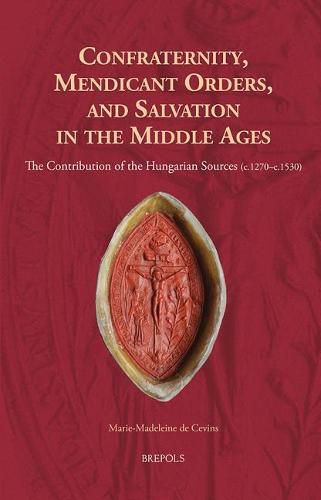Readings Newsletter
Become a Readings Member to make your shopping experience even easier.
Sign in or sign up for free!
You’re not far away from qualifying for FREE standard shipping within Australia
You’ve qualified for FREE standard shipping within Australia
The cart is loading…






By the late Middle Ages, mendicant spiritual confraternities had developed a bad reputation. Their spiritual status was ill-identified: somewhere between requests for intercession, necrological commemoration, and pious associations. In the hands of the mendicants, they seemed to resemble what indulgences had become in the hands of the bishops and the papacy: a bait handed out to extort funds from the faithful while offering an apparently immediate access to Paradise. Thus, like indulgences, they seem to have been gradually emptied of their substance and denounced (even before Luther) as glaring evidence of the corruption of the Roman Church. Much recent scholarship has followed this negative portrait of spiritual confraternities–unless it has conflated them with other non-spiritual confraternities, or indeed ignored them altogether. This volume draws on the abundant number of letters of confraternity available from Hungarian sources in order to provide a more nuanced picture of mendicant spiritual confraternities. It sheds new light on the links between the mendicants and their supports among the laity, and emphasises the broader significance of the confraternity movement in late medieval piety in Central Europe and beyond.
$9.00 standard shipping within Australia
FREE standard shipping within Australia for orders over $100.00
Express & International shipping calculated at checkout
By the late Middle Ages, mendicant spiritual confraternities had developed a bad reputation. Their spiritual status was ill-identified: somewhere between requests for intercession, necrological commemoration, and pious associations. In the hands of the mendicants, they seemed to resemble what indulgences had become in the hands of the bishops and the papacy: a bait handed out to extort funds from the faithful while offering an apparently immediate access to Paradise. Thus, like indulgences, they seem to have been gradually emptied of their substance and denounced (even before Luther) as glaring evidence of the corruption of the Roman Church. Much recent scholarship has followed this negative portrait of spiritual confraternities–unless it has conflated them with other non-spiritual confraternities, or indeed ignored them altogether. This volume draws on the abundant number of letters of confraternity available from Hungarian sources in order to provide a more nuanced picture of mendicant spiritual confraternities. It sheds new light on the links between the mendicants and their supports among the laity, and emphasises the broader significance of the confraternity movement in late medieval piety in Central Europe and beyond.